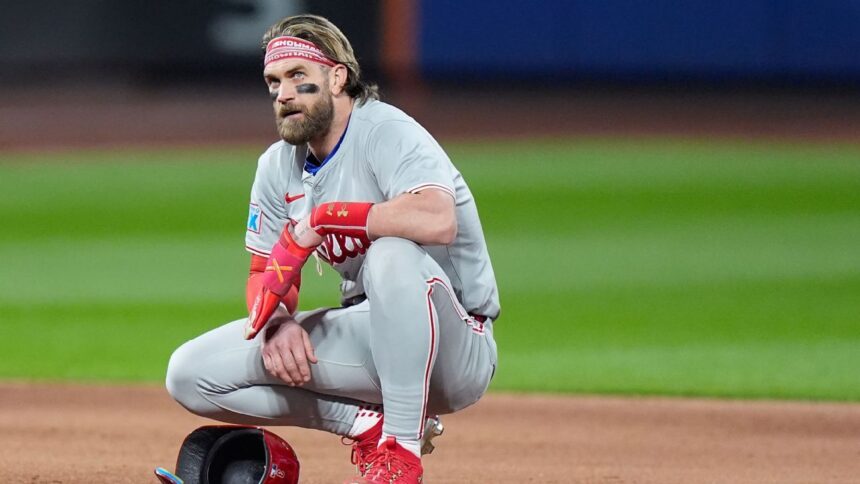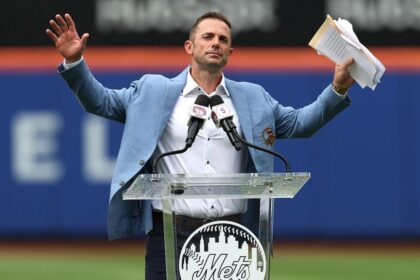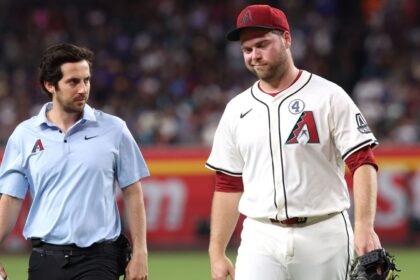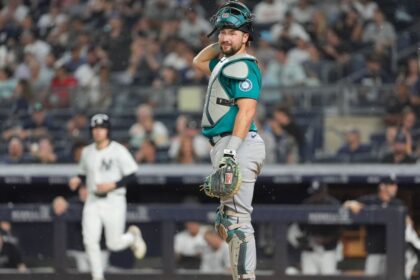Bryce Harper Confronts Rob Manfred Over Potential Salary Cap
In a tense encounter between MLB commissioner Rob Manfred and Philadelphia Phillies star player Bryce Harper, a heated exchange of words erupted. The meeting, which is part of the 30 that Manfred holds annually to improve the relationship with the players, became heated due to the discussion about the possible implementation of a salary cap in baseball. According to sources, the conversation about the game’s economy irritated Harper, one of the most influential players in MLB and two-time National League MVP. Faced with the insistence on the salary cap issue, Harper, visibly frustrated, responded that the players are not afraid of losing games if that measure is implemented. Then, he confronted Manfred and demanded that he leave the locker room if he wanted to continue talking about the subject.Manfred, for his part, responded that he would not leave, arguing the importance of discussing threats to the MLB business and ways to grow the game. The atmosphere relaxed thanks to the intervention of Nick Castellanos, who tried to calm the situation. Although the meeting continued and they shook hands, Harper did not answer Manfred’s calls the next day. Castellanos described the encounter as “intense and passionate”, highlighting the response of both, Manfred and Harper. The player also mentioned that he was not surprised by Harper’s reaction, who has been involved in this type of situation since he was 15 years old. After a Phillies loss, Harper avoided going into detail about what happened, but stated that he doesn’t think talking publicly about the issue would be beneficial for anyone, and that he prefers to focus on the game. The discussion about salary caps has been a recurring theme in baseball, especially with the expiration of the collective bargaining agreement between MLB and the MLB Players Association (MLBPA) in December 2026. Several owners have expressed their support for a salary cap, while the MLBPA strongly opposes it, arguing that this serves to increase the value of the franchises more than to reduce the disparity between teams with higher and lower spending. In this context, Harper, represented by Scott Boras, embodies the union’s stance. Tony Clark, executive director of the MLBPA, has called salary caps “institutionalized collusion.” The meeting between the Phillies and Manfred, which addressed several topics, highlighted the importance of collective bargaining negotiations and their possible consequences. Castellanos noted that Manfred’s mention of the possibility of a work stoppage two years in advance is a sign of the importance he places on the issue of the salary cap. Although Manfred has not committed to seeking a salary cap, several owners have criticized MLB’s current economic system. The disparity in payroll spending between teams like the Dodgers and the Marlins has generated unrest among fans and intensified the debate over salary caps. Castellanos believes that meetings with Manfred are important to understand the league’s perspective on a business that generated more than 12 billion dollars in revenue last year. With the league seeking to nationalize local television rights by 2028 and the growth of gambling-related businesses, Castellanos considers education vital to ensure a well-informed player population. Castellanos affirmed that neither the players nor the league want an interruption of work in baseball. Manfred has been holding periodic meetings with the teams since the 2022 negotiations, with the aim of improving the relationship with the players. However, the distrust of the players towards Manfred persists, especially with regard to economic issues. The MLB’s search for a salary cap dates back decades, being one of the reasons for the 1994 players’ strike, which canceled the World Series. Arguments similar to those used in the 1990s have been taken up again, especially in relation to the lack of profitability of the teams, despite the growth in value and revenue of the franchises. Castellanos commented that the players wonder why they are spoken to as if owning a baseball team were like having a nail salon. Players from several teams have taken advantage of meetings with Manfred to question the lack of spending on the payroll of certain teams.If you want to talk about that, you can get out of our locker room.
Bryce Harper












